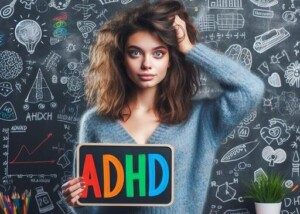Insomnia may help explain why adults with ADHD traits often report a lower quality of life.
This comes from research led by the University of Southampton in collaboration with the Netherlands Institute for Neuroscience.
The study, published on July 15 in BMJ Mental Health, reveals that people with higher ADHD traits experience a reduced quality of life, and that difficulty with sleep may be a key contributing factor.
It’s well known that sleep issues are common in people with ADHD — at least one in four report some form of sleep disorder, with insomnia being the most prevalent.
Dr. Sarah L. Chellappa, senior author of the study, explains in the paper that the study shows a link between the features of attention deficit hyperactivity disorder, the severity of insomnia, and a reduced life satisfaction.
Disruption in sleep, continues the paper, can certainly impair one’s attention and emotional regulation.
But sleep troubles can also be made worse by the hyperactivity and impulsivity in ADHD.
This can mean a “self-reinforcing cycle between ADHD symptoms and sleep problems.”
How the Study Was Done
The researchers analyzed data from the Netherlands Sleep Registry, which includes responses from over 10,000 adults.
They focused on 1,364 individuals who had completed detailed questionnaires about ADHD traits, sleep quality, circadian rhythms, depression and overall life satisfaction.
Results showed that those with more pronounced ADHD traits reported more severe insomnia, poorer sleep quality, a tendency to stay up late and more symptoms of depression.
Both ADHD symptoms and insomnia independently predicted lower quality of life.
Notably, insomnia emerged as a possible key link between ADHD and reduced life satisfaction.
This investigation’s findings center on association.
But what about cause and effect? That isn’t clear, but below is an article in which a physician discusses how untreated, undiagnosed obstructive sleep apnea can cause ADHD features.
And needless to say, untreated OSA can also result in difficulty with sleep.
 Lorra Garrick has been covering medical and fitness topics for many years, having written thousands of articles for print magazines and websites, including as a ghostwriter. She’s also a former ACE-certified personal trainer. In 2022 she received a diagnosis of Level 1 Autism Spectrum Disorder.
Lorra Garrick has been covering medical and fitness topics for many years, having written thousands of articles for print magazines and websites, including as a ghostwriter. She’s also a former ACE-certified personal trainer. In 2022 she received a diagnosis of Level 1 Autism Spectrum Disorder.
.










































